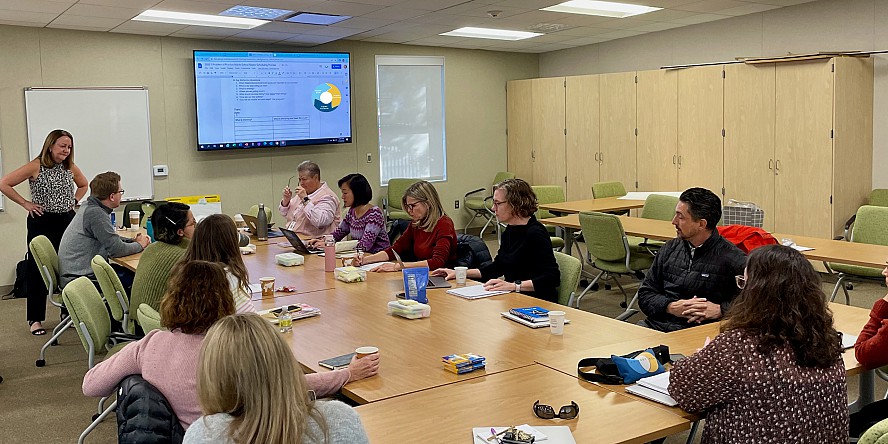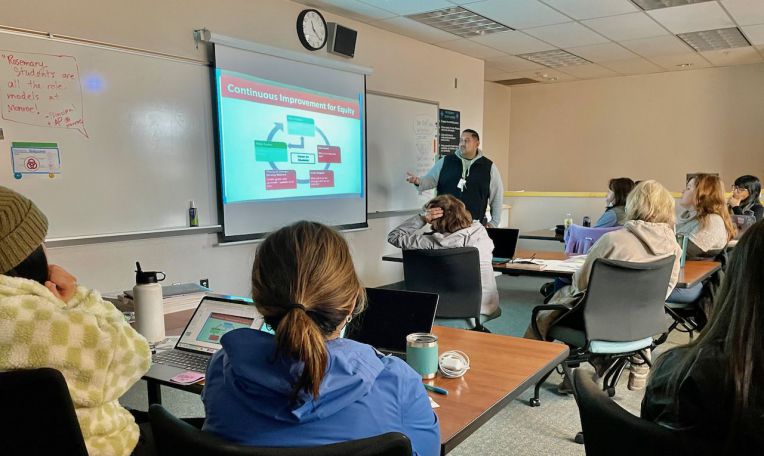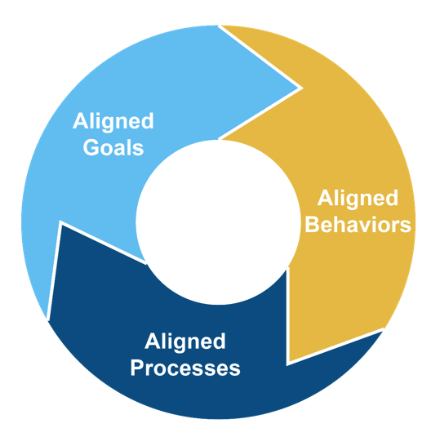Lifelong Learning: A Core Value
District expands continuous improvement practices

The volume of work needing to be done in education can seem insurmountable. What makes the work manageable is focusing on a specific challenge, taking one or two actions aimed at improvement, assessing for effectiveness, scaling what works, and abandoning what doesn’t. This concept is at the core of Campbell Union School Districts’ continuous improvement work.
“Continual Improvement makes system change do-able. It simplifies the process and prioritizes what matters most,” said Superintendent Shelly Viramontez. “Improving the student’s educational experience is key. It’s better this week than last week, better this month than last month, and so on. We are getting better, not perfect.”
 Since the 2021-22 school year, district leaders have trained to use improvement practices to tackle barriers to learning—language differences, socioeconomic disadvantages, and others—and close achievement gaps. Training is expanding this year to include school-level staff.
Since the 2021-22 school year, district leaders have trained to use improvement practices to tackle barriers to learning—language differences, socioeconomic disadvantages, and others—and close achievement gaps. Training is expanding this year to include school-level staff.
Improvement practices speeds up learning-by-doing, according to the Carnegie Foundation for the Advancement of Teaching and Learning. It is a user-centered and problem-centered approach to improving teaching and learning. It applies small, measurable, and individualized changes to address specific issues and uncover the root cause of problems.
 Using surveys, assessments, and other data sources, staff can identify one or two ‘pain points’ in the system, test a solution, study the outcomes, and adjust or continue the practice based on the data. Then, they move on to the next one.
Using surveys, assessments, and other data sources, staff can identify one or two ‘pain points’ in the system, test a solution, study the outcomes, and adjust or continue the practice based on the data. Then, they move on to the next one.
“Systems get what they’re designed to get,” said Viramontez. “To change what we get, we need to be intentional about adjusting the system.”